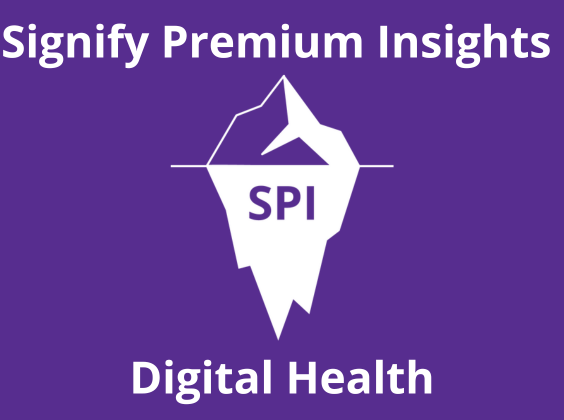
Written by

Cranfield, UK, 9th October 2024, Written by Arun Gill – Hi everyone! I’m delighted to share the latest edition of my EHR news round-up. Featuring news from Epic, Particle Health, MEDITECH, Getinge Talis Clinical, LLC, Varian Siemens Healthineers, RaySearch Laboratories, VieCure, Resilience, and Cureety.
Getinge Partners with MEDITECH
Interesting news last week as Getinge’s Talis Clinical, LLC , a leader in Anaesthesia Information Management Systems (AIMS), announced a strategic partnership with MEDITECH, and joined the EHR vendor’s US Alliance Program. As part of the collaboration, Talis’ recently FDA cleared +ACG™ platform will be offered through the MEDITECH Anaesthesia Integration Suite. This will provide benefits such as seamless integration with EHRs to provide clinicians with real-time data throughout the anaesthesia process.
Of the four large inpatient EHR vendors in the US, MEDITECH appears to be taking a broad 3rd party approach here to offering an AIMS solution, as opposed to self-developed strategies adopted by Epic , Oracle Health and Altera Digital Health.
We’ve previously covered the High-Acuity Clinical Information Systems battle between the EHR and best-of-breed vendors in this complementary insight. The third iteration of this report is publishing soon. If you’d value a discussion on this topic, please get in touch!
Particle Health Files Antitrust Lawsuit Against Epic
Last week, Particle Health filed its antitrust lawsuit against Epic, alleging anticompetitive behaviour in the payer platform category. Central to Particle Health’s stance is it was making use of HIEs by requesting data for treatment purpose of use and additionally repurposing that for operational purposes. Particle believes this secondary use of data and therefore piggybacking on HIEs is within HIPAA legislation. It claims Epic used its market power (c. 40% share of US hospitals and half the share of beds) to restrict competition, asked its customers to cease their relationship with Particle, and damage Particle’s reputation by implying there were security/privacy risks.
Epic has dismissed the claims as “baseless” and is likely to argue that Particle Health was instead using the data for primary use – an abuse of network rules and legislation.
Judy Faulkner, CEO of Epic, announced last month that while she has no plans to retire from the market-leading vendor ($4.9bn revenue in 2023), she has made arrangements for the company to stay private and employee-owned after she’s gone. This is in-line with the first two of Epic’s 13 Principles, summarised in this blog.
Multiple Oncology IT Announcements
I’ve closely monitored Oncology IT-related developments in recent months, including the battle between EHR (e.g. Epic ) and best-of-breed specialists (e.g. Elekta, Varian Siemens Healthineers, RaySearch Laboratories). September’s noteworthy announcements are summarised below:
- Varian (Siemens Healthineers) unveiled a 10-year oncology collaboration with Ballad Health, a US not-for-profit integrated healthcare system operating 20 hospitals, post-acute care and behavioural health services. The deal includes bringing advanced radiotherapy solutions and treatment services to patients through Varian’s ARIA CORE oncology management solution. Eight TrueBeam linear accelerators and one Ethos adaptive radiotherapy system will be delivered to six sites in Tennessee and Virginia. The deal also includes Varian’s Advanced Oncology Solutions (AOS) Professional Services to provide operational support and consulting services.
- Congratulations to AI-enabled platform provider VieCure for securing $45m in funding. ViewCure offers a comprehensive suite of tools, including an OIS, mobile patient and physician apps, telehealth, and analytics. It’s Halo Intelligence clinical decision support platform aims to address the complexities of precision oncology data, assisting clinicians in managing a patient’s personalised treatment plan throughout cancer diagnosis, therapy, and follow-up care. Since its inception in 2016, the platform went live in mid-2022 and the vendor has grown its US community cancer centre network across more than 100 locations, serving over 18,000 patients. The vendor aims to accelerate adoption of its platform with the funding.
- French healthcare provider Elsan unveiled two strategic partnerships with remote monitoring oncology start-ups Resilience and Cureety . This will enable its chemotherapy departments to make use of remote monitoring and offer patients treatment. In June 2023, two new digital pathways were unveiled in France: LATM (List of Medical Telemonitoring Activities) and PECAN (Early access reimbursement for DH solutions). Four months later, both vendors received approval for their offerings. Resilience’s PRO became the first remote monitoring medical device in oncology to be reimbursed under LATM (fixed monthly reimbursement prices of either €50 or €73 per patient, depending on the tumour stage). Since its most recent $24m funding round in May 2024, Resilience plans to significantly accelerate its deployment both in France and across Europe, including Belgium and Germany. Cureety’s Techcare software received reimbursement approval (PECAN) for remote monitoring of adult cancer patients undergoing systemic/radiotherapy treatment (€50 per patient per month).
- Lastly, in early September, Iridium Network, the largest radiotherapy network in Belgium with eight hospitals in Antwerp, treated its first patient using specialist oncology information system (OIS) vendor RaySearch Laboratories’s RayCare, together with a Varian TrueBeam linear accelerator.
I’m delighted to be publishing the second edition of our Oncology IT – World – 2024 report and detailed analysis later this month. Let me know if you’d like to find out more!
HIMSS AI in Healthcare Forum
Last month, Boston was home to the HIMSS AI in Healthcare Forum. The event offered a chance for members of the healthcare and technology communities to meet and share their thoughts about the future of AI’s adoption in healthcare. My colleagues Vladimir Kozynchenko and Charles Radclyffe were in attendance and their Top Five Takeaways have been summarised below:
- There is too much focus on point solutions, but integration is key
- A seamless, holistic AI assistant remains one of the most valuable implementations of generative AI
- Clinical workflow support solutions are the current leading use cases.
- As good as AI tools are, there remains considerable need for their assessment
- AI’s adoption needs work; its uptake, in some instances, lags behind its capabilities.
As Alan Stoddart explains in this full insight, generative AI faces an uphill battle when it comes to trust among patients and some clinicians. Clear integration into existing EHRs and relatively straightforward feature updates for existing customers will help ease barriers, conveying gen AI tools as simply new tools. However, leaders need to establish clear strategies to guide exactly what can and what cannot be entrusted to generative AI tools. Despite the advantages gen AI can offer, there is the risk that if not implemented well, and if not integrated into hospital workflows, the advantages it promises could be significantly mitigated.
About the Digital Health Team
Signify Research’s Digital Health team provides market intelligence and detailed insights on numerous digital health markets. Our areas of coverage include electronic medical records, telehealth & virtual care, remote patient monitoring, high-acuity clinical information systems, patient engagement IT, health information exchanges and integrated care & value-based care IT. Our reports provide a data-centric and global outlook of each market with granular country-level insights. Our research process blends primary data collected from in-depth interviews with healthcare professionals and technology vendors, to provide a balanced and objective view of the market.
About Signify Research
Signify Research provides healthtech market intelligence powered by data that you can trust. We blend insights collected from in-depth interviews with technology vendors and healthcare professionals with sales data reported to us by leading vendors to provide a complete and balanced view of the market trends. Our coverage areas are Medical Imaging, Clinical Care, Digital Health, Diagnostic and Lifesciences and Healthcare IT.
Clients worldwide rely on direct access to our expert Analysts for their opinions on the latest market trends and developments. Our market analysis reports and subscriptions provide data-driven insights which business leaders use to guide strategic decisions. We also offer custom research services for clients who need information that can’t be obtained from our off-the-shelf research products or who require market intelligence tailored to their specific needs.
More Information
To find out more:
E: enquiries@signifyresearch.net
T: +44 (0) 1234 986111
www.signifyresearch.net
